|
If you REALLY want to get to know what was going on in those original *cassette culture* days, here's an interview that will tell ALL about it! When I read Mick's answers to my questions it brought back so many things I almost forgot .. this is a manifesto! If it's simply too much for to read in one go ... take your time to read - return several times .. this is part of world's culture you can't read about in books.
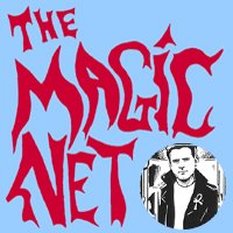
When you visit MickMagic.net you'll immediately realise that this is a unique universe. What you'll find is a unique, personal website that does not remind you of any update internet formula. In fact I think his website is the absolute antithesis to today's meaningless one-worded so-called update communication that is shrinking the brains of the world's population. His website is done by himself. Several years ago he had no idea how to create a website, so he learned how to create one. The result is a digital version of his newsletter of the 80s/90s - in look and feel!
More or less all internet websites look alike these days. You gotta have this or that approach to appear professional these days. This uniformity killed creativity and thus *no one* can create websites anymore. More or less everybody works with templates if you want your own website. (Don't get me wrong - there are occasions where a template is the perfect solution to a problem - but the WHOLE world based on templates?) Too many just don't bother at all and put pictures and info on *social media* sites and every click on a Facebook artist/band page is enriching Zuckerberg and the others.
Mick Magic also has a Facebook page, feels bad about it and puts it into a context:" Yeah, it's good to have Electronic Cottage back, especially as Hal seems to be building an alternative hub now. I think a LOT of folk are disillusioned with Facebook. Personally, I do find it exceptionally useful and just work on the basis that I use it and tell it nothing that allows it to use me. But, at the same time, I'm conscious that people aren't all so savvy and many do get caught by it, and in some small way, my using it counts as an endorsement which makes me feel like I'm part of the problem. It's a dilemma." Mick Magic in an email, May 2018. I don't want to dwell on that again and again but I again and again realise that everything is forced into line today (a world ruled and dictated by templates) and especially the work of people like Mick Magic remind me that the underground once was a real separated alternative field, exploding with creativity, offering something different in any way thus working on a true positive-minded level of alternative (!!) culture - that has been taken from us and they found a way to make money with it, with us - so - YES I'm angry. Mick Magic a true unique European identity looking for a worldwide united underground. I realised that when he married he wore a kilt - but - after asking for clarification, I learned something new. Mick Magic:" It's an Irish National Tartan 'skirt', not a Scottish one! They're not quite as historic as the Scottish version, it was more a revolutionary thing to bully up Irish identity in the face of British oppression. I'm quite proud of my Irish roots and being a member of the Ó Coileáin family, the most famous son of which would be Michael Collins, a distant cousin of my Great Grandfather. I have some French ancestry on my paternal side as well, Durant was the family name, going back to the Huguenot pogroms in the 17th century. Attached to the picture is the kilt-pin I wore with it."
Mick's distribution was one of the biggest distribution systems here in Europe. The system was open-minded, the focus was international underground variety, communication and cooperation. There wasn't a style or sound you could not find. He wasn't the only one with a big distribution in England. One should also mention Stephen Parsons BBP Records and Tapes. Also a true fighter for the underground but his distribution was focused on "anarchy and punk". Because he wanted to do more for the underground he had the idea of Kentucky Fried Royalty, a total open-minded cassette distribution system with several branches all over the world. The rest you'll read in the interview.
When I said you could find an incredible variety offered by Mick there still was a general style and sound. So a folk-based band from Poland went very well together with a Space band from England. Extremely bizarre bands from the Ukraine and/or Thailand went well with solo electronic from Transylvania. Probably there was a general underground flair and sound in those years. Some were live big bands, some were at-home recording solo artists. Being a musician distributed by Mick gave one a real good feeling - a feeling of being at home, a feeling of knowing that one's music will really find an audience ... a family! ... from your regional small scene to the world. So to me Mick is one of those people who changed the world and will probably never be mentioned in any official encyclopedia. A good example to realise all the things *they* never tell you.
Mick Magic - the ultimate interview
"Okay, here we go, in-depth you wanted, in-depth it is. I think this is by FAR the most in-depth and personal interview I've ever given actually!"
- Mick Magic, May 2018
Lord Litter (LL): I guess your journey into the underground started with an own band. Please give us an idea about the band - when did you start, the line up, did you play live? Mick Magic (MM): It certainly did, the last of many, and definitely the one that played live most. From my early teens, I had been writing songs and performing solo (in my bedroom), I’d also been involved in a string of bands; mostly my own (with names like Mystic Love, Ankh, Tron), but some formed with or by others (Crystal Leazant, The Sound Machine, Wispy Cross). Levels of accomplishment ranged all the way from never quite getting our shit together to organise a rehearsal, to actually playing live and cutting an acetate. Come the tail end of my teens, I’d given up, sold a lot of my musical instruments (and have never stopped regretting it), put my guitar into mothballs and started working with a mobile disco instead. Then I did the too young marriage (failed) and proper job (failed many times) thing. After that, I really made a mess of things! Then, after several directionless and wasted years, I just happened to bump into Shona while having a drink at the One Oak pub with a mate. We’d grown up next door to each other, you don’t get a much better ice-breaker than that, so we got talking, and in spite of me having an awful (and deserved) reputation as one of the local bad-asses, we got on quite well and started going out. Seriously, you wouldn’t have liked me then, I didn’t. Gradually, she helped stabilise my life, and by the summer of ’86, she’d become my second wife and I was going to work in a suit and tie as a sales team leader at a uPVC window company. Stable, but always deeply conscious that something was missing. So Magic Moments At Twilight Time sort of accidentally began... LL: Did you record with this band? Was it homerecording or did you go into a studio? MM: Oh yes, quite a bit! And both inside the first year, as it turned out, but it started at home, of course. It was the first of a series of happy accidents. We had one of those Nicam hi-fi stereo VHS players, the sound quality of which was quite impressive, but it also had a ‘normal’ soundtrack facility, so it could play the old style tapes where the soundtrack was on a separate band from the video part. It occurred to me that I could make a full stereo recording on the Nicam tracks, then have two channels of overdubs on the ‘normal’ ones (albeit with only automatic level control), and finally mix them down onto cassette. I spent a few months doing that with some of the old ballads and comedy songs I used to perform alone or to a few friends in my room, which was all very nice, but it wasn’t really what I wanted to be doing. I’d grown up with adventurous and progressive music, spacerock and the great German electronic pioneers, I had a taste for the musically explorative. I was 28 years old and bored with the idea of having nothing more than driving to an office five days a week to look forward to for the next 37 years. Then I could retire, sit around at home, annoy the hell out of Shona and wait to die. 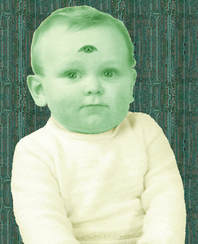
Then came Saturday 25th October 1986, the day of the W20 Sessions. Now, the official story is that a small green alien called Albert sneaked into my living room overnight and changed how all the effects pedals were set up to create this strange psychotronic sound. So the Saturday was a day of experimentation with it, just myself, electric and acoustic guitars, and a Casio CZ230-S digital synthesizer with programmable sequencer and drums built in. The results were raw but interesting, some were really quite good. I could hear it had the beginnings of something in it and decided to call the project Magic Moments At Twilight Time.
Not a random thing, it comes from the singles that were no.1 in the charts either side of the Atlantic when I was born; in the UK it was Perry Como’s “Magic Moments”, Stateside it was “Twilight Time” by The Platters. 21st April 1958 to save you ten minutes of compulsive anxiety while you have to go look it up! Or is that just me? Editor's Note: No, it's not just you. See below.
Anyway, I kept on practising and fine tuning until I had the lion’s share of a half decent demo put together. To finish it off, I had one piece of music done that I really liked, though it clearly needed a little something extra, so I talked to Shona about helping out. She was a talented actress and did a reasonably convincing American accent to boot. I had the idea of her doing a voiceover on it in a kind of psychotronic b-movie style, so I wrote a somewhat avant garde short called “Story X” which she delivered perfectly to the music. It became the opening track of our first ‘official MMATT demo’, “State Of The Art”.
LL:
Did you release the music of the band? Which format? Did you sell the releases?
MM:
On 11th March 1987, “State Of The Art” (C-4003), a 46 minute cassette with a photocopied and hand-tinted inlay, became the first release on what would ultimately become the Music & Elsewhere label. It was put out simultaneously with two other cassettes of the earlier demos (erroneously, I would say with the benefit of hindsight), but it was the one I concentrated on, promoted and sent out to labels etc. The timing was quite lucky because a new independent record shop called The Rock Box had recently opened in Camberley. It was run by a really decent guy called Ken Dudley who was very into supporting new bands and helping grow a thriving local music scene. I popped in and asked if he’d be willing to sell our demo tapes, he said he’d be happy to and didn’t take a penny for doing it either, which was maybe just as well coz I don’t think that first demo quite made double figures!
LL:
I have to admit that the sound of Magic Moments At Twilight Time is extremely unique - even for those days when everything was *unique* - who created this sound?
So anyway, the second stage of the sound’s development came after I actually put a real band together. To my amazement, the “State Of The Art” demo got some attention from a label, Earworm Records, based in south London. Around the same time, it also got its first public performance at a gig by local gothic punk heroes, The Charles, who duly invited us to support them.
It took a little persuasion, but I finally got Shona to come on board. She enjoyed singing, but her main love was theatre. As it turned out, that would come in handy, but MMATT wasn’t really the kind of thing she wanted to pursue, and I’ve always been grateful to her for doing it and helping make some of my dreams come true. Only wish I could have done the same for her. Then, as luck would have it, a friend by the name of Eddie Irwin introduced me to Jay and Kate, who just happened to live on the same road. Jay was a fabulous bassist and some of his bass lines absolutely transformed songs, as did Kate’s keyboards and synth FX, so they certainly played their part as well. It was as a four piece that we got to record two tracks for Earworm at the Brunhildes Foot Studio in Clapham, and you can really hear the sound coming along by then. Kate died in a car accident at the age of 30, sad loss, she was a lovely girl. So yeah, there was a spark of creation there from myself, but it evolved greatly via many influences and other artists I had the pleasure to work with.
LL:
I know you were part of a regional *scene* - how did that work?
MM:
Yes, The Grain, and that was all thanks to The Charles. The happy accident there was that they had a total dick for a manager. When it was just Shona and myself (we used to bill ourselves tongue in cheek as “a husband and wife duo from north west Surrey”), we were supposed to support them for the first time at a local community centre. Only Dick Manager had screwed the dates up and the gig was called off like a day or two before. Luck stepped in again, because by the time the gig had been rearranged, Jay and Kate had joined us. Anyway, I consequently suggested to The Charles that they didn’t really need a manager anyway, least of all one who couldn’t even book a community centre for the right date, and we could do it ourselves. And thus was formed The Grain. It was effectively a local band co-operative, we did gigs with each other, produced a zine, even ended up staging a seven band outdoor festival in aid of Greenpeace, quite an achievement for a bunch of inexperienced amateurs! It lasted less than a year, really coming to an end when The Charles split up after having their drum kit nicked from a squat, but it felt like much longer. It was an amazing and creative time, populated by amazing and creative people, a time I have very fond memories of, and I don’t think MMATT would ever have amounted to anything if it hadn’t have happened. Music & Elsewhere neither, The Grain set the template really. There’s quite an in-depth article on our website if anybody would like to know more, and the “Grain-Aid!” compilation (MMATT 19) I released in the July of ’88 as a permanent memorial to it is free to stream or download.
LL:
When and how did you realise that there was a worldwide "cassette culture network"?
MM:
Ironically, that all happened after MMATT’S demise! Sod’s Law, as we call in it in the UK. Jay had quit in the April of ’88, unhappy with the direction things were going, which in turn made things awkward for Kate, who subsequently drifted away a couple of months later. In the July of ’88, just after I’d turned our demo label into an official registered one (what was I thinking, but it seemed like the thing to do at the time), Shona decided she wanted to become my second ex-wife, albeit one that would still talk to me. We had gig obligations up until the February of ’89 and recorded one final farewell album together, but after “Zoen Nostalgia” (MMATT 30) was released in July 1989, that was it. I did, of course, still have to promote it. It was one zine in particular that made all the difference, The Organ, who rather kindly reviewed it as “the greatest concept album ever” (personally, I’d bow to “Captain Lockheed & The Starfighters”). As a result of that review, we didn’t just get tape orders, there were quite a few other bands who got in touch, made friends, sent us their stuff, we sent them ours etc. Amongst these was a guy called Nik Hunt, who was drumming with Mandragora at the time, and he’d put a handful of flyers in with the tape and letter, one of which was for BBP Records & Tapes. At one point, with seemingly no hope of my putting another MMATT line up together, I took a sabbatical, but held on to all that stuff, just in case. By late 1990, I’d recruited Leonie (she never did like being called Lulu The Space Bimbo, trust me!) as singer, and Pete, who’d done live visuals with the original band, to provide synth FX, and was again keen to make new contacts (still in business mode at this point), so I wrote to Stephen Parsons, another of those sadly no longer with us, who turned out to also be running an underground distribution network called Kentucky Fried Royalty, the German wing of which was run by yourself. I first made contact with you not long after, et voila, you were my gateway to the world.
LL:
What made you join - when and how did you start to work on an underground distribution system - did you distribute a specific sound, or how would you define what you distributed?
MM:
I’m not sure I really knew I’d joined anything at the time, I’d set up a label and was looking for further opportunities to distribute our releases. I say ‘our’, it was just our old stuff and a band called Christ! at the time. I wasn’t shouting, the exclamation mark was part of their name. In the latter months of 1991, we had a visit from two of the American underground’s great luminaries, Don Campau (Lonely Whistle Music, No Pigeonholes) and Kevyn Dymond (Guaranteed Cleveland Records, Anemic Billfold), and that kind of changed the field of play. The idea that people from other countries you only ‘knew’ through letters and tapes could become instant friends the second they hit your doorstep appealed, and I learnt so much through spending a couple of days talking and jamming with them. And there was food for thought too. At one point, Don made a comment to the effect of “it’s a shame, but some people just see the underground network as another place to sell tapes.” At the time, I just thought, “Yeah, durr, why else?” That seems such an alien thought now, even by the time they’d left it seemed a bit alien and I started to think of it all quite differently. Soon after, Phil McMullen of the Ptolemaic Terrascope magazine took me to task over the PPL warning on our inlays (we were members then). Again, I just thought that’s what you did, never really considered any alternatives. I gradually began to realise that the world I’d grown up in, the one I’d never felt I belonged in (unbeknown to me at the time, I have Asperger’s), wasn’t the only world there was. I was home. I was part of a community. The actual distribution system part came about through Stephen Parsons telling me he was giving up KFR UK as he was planning to move to the States. Naturally, I expressed an interest in taking it over when he went. For reasons I really don’t recall with any clarity, that didn’t happen, so I resolved to expand my own MMATT (Music & Elsewhere) label and open it to the global underground. It was originally advertised in the January of 1992 as The Mmattrix Distribution Service, but by April when we issued the first releases, we just went with Music & Elsewhere. The remit was basically ‘bands with whom we shared a common element’. It made sense, they would be the ones that people into our stuff would be most likely to be interested in, and reciprocally, we started putting together the “Flashbax” series so other labels could release our music too.
LL: Was it easy (almost organic) to find all these musicians - in the end you distributed about 600 tapes if I'm correct. MM: Don’t exaggerate, it was 599! Well, 597 cassettes and two CD’s, up until the summer of 2003 when M&E originally folded, then one online compilation and three mp3 collections on data discs since it resurfaced in 2012. There wasn’t really a lot of finding involved. Sure, there were some bands I heard, loved, and actively tracked down, but mostly they found us, such was the effectiveness of word-spreading through the network. In the end, we released albums by artistes from 31 different countries, spanning five continents, and probably a dozen or more other countries if you count compilation tracks. So yeah, it was easy to find stuff to release, the amount of material we were sent got quite overwhelming at times. Hey, you’ll know all about that! LL: Your work always had a very unique but professional approach, the logo, the layout - did you create that? MM: Nice man. Yes, I created the MMATT, Mmattrix, M&E and UWU logos, but then I’m no stranger to graphic design work, I’ve done a fair bit over the years ; a few book covers for the football writer, Rob Cavallini, some football programme covers (including some for the legendary Corinthian-Casuals), wedding paraphernalia, bar signs, all sorts. LL: I remember the newsletter and the catalogue. Both a very informative but probably even more entertaining publication. Was that fun to do? How did you create them, simple Xerox copies? MM: I did used to enjoy it, sure, even though it was very time consuming and hard work. I don’t how much Sam (wife no.3) enjoyed the evenings sitting alone reading books while I was doing it though! They were pretty much all done by hand; I used to buy pads of good quality A3 cartridge paper from the local arts and crafts shop, set out the border lines with a rule and fine art pens, the headlines were added with Letraset, then the logos and artwork would be fixed on with double-sided tape after I’d typed the text on an old manual typewriter and acquired shares in Tipp-Ex! The finished product would then be taken to a print shop in Camberley where they would reduce each page to an A4 master, then they mass photocopied them onto coloured paper, mostly ‘old gold’. There are a few issues scanned (courtesy of Irre Tapes’ Matthias Lang) and available for download on our website if I’ve got anyone feeling nostalgic yet, you’ll find them at The M&E News - Back In The Day. 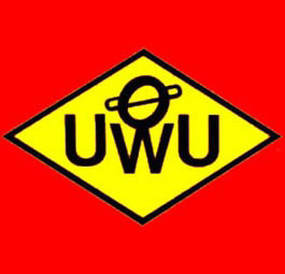
LL:
You once changed the name of your distribution - why? MM: That was a mistake, wasn’t it? I think I was getting a little too big for my boots, though it was all done with noble intentions. I think I wasn’t coping well with all the change that was happening circa the turn of the millennium, the growth of the internet, e-mail, CDR’s, all that stuff, I don’t always deal well with change, I think it’s the being on the autistic spectrum thing. The switch to the ‘United World Underground’ name was an attempt to embrace that new reality with something that sounded bigger and less parochial than M&E. It was stupid because the M&E name was already well established with something like 500 releases under its belt. In any event, it didn’t last long before we switched back, though I did keep the UWU tag as something of an umbrella title for the whole global network. Funnily enough, for a name that was supposed to add a totally international feel, it didn’t translate at all well, English being about the only language it sounded cool in! Life, eh?
LL:
How did you spread the news about your distribution? Did you also have ads in quite conventional media? MM: The M&E Newszines were the main part of that, and quite successful at doing it. Whenever I made contact with anybody new, I would include the latest issue with the letter and cassette. It wouldn’t just give them a more in depth picture of everything we were doing, there was also all the network information that would serve to illustrate we were team players in something greater, a way of demonstrating we weren’t seeking a one way relationship, rather one where we could help each other. That’s what was unique about the underground network, you were no longer just a struggling artist sending largely ignored “I want” letters and demos to disinterested ‘music biz’ labels, now you were a struggling artist who was a valued member of an international community. As for all the humour, that’s just me, not like I have any choice about that, but if it made it all the more readable and entertaining, great. And no, never took out a paid advertisement anywhere, still wouldn’t, I have principles (and insufficient funds)!
LL:
You released two CDs - one of your band and a compilation. Any insights you want to spread in this context?
MM:
BE CAREFUL WHO YOU GET TO MANUFACTURE THEM!!! Seriously though, the notion almost seems obsolete these days, so much has changed. We were keen to take things a step further, you see. As much fun as cassette releases and the underground network were, a lot of doors would be automatically closed to us. If you wanted serious distribution, to have material stocked in record shops, to get reviews in major music press etc, you really needed to get something on compact disc, so I was absolutely over the moon to get the opportunity, and when free studio time and finance were made available to us, we grabbed them firmly with both hands. And it worked, it sold more copies than all the MMATT tape releases put together, got us written about in magazines that wouldn’t previously have given us the time of day and helped raise the profile of the label dramatically. Okay, maybe a lot of it was on the wave of publicity that followed the awful protracted legal battle we fought rather publicly with the disc’s original manufacturer, but it did genuinely get us taken much more seriously. I still think it’s a little sad that that’s the case, music is music, so long as it sounds good, surely it doesn’t matter what format it’s on? Of course, you and I know it does, but we’re from a different planet to those industry vultures, aren’t we? LL: All in all were you satisfied with the result of all your work in the original cassette culture days? MM: I’m satisfied that I gave it my best shot, yeah, pretty much devoted a decade of my life to it, no regrets. Hindsight suggests there are things I could have done better, mistakes the person I am now wouldn’t have made, but life is necessarily a learning curve, and maybe that’s no bad thing. I’m extremely proud to have been a part of something I personally regard as one of the most important sociological phenomena of the age. LL: When, why and how did your life as member of the cassette culture end? Did it just fade or were there exceptional occurrences? MM: It was something of a fade, yes, but with exceptional occurrences as well. Looking back, I can see now how much that year long legal battle took out of me, both on personal and idealistic levels. As well as Asperger’s, also unbeknown to me at the time was that I have Cyclothymic Disorder, a milder form of Bi-Polar. Ah, shit, you have to laugh, but sometimes you can’t help feeling the dice are loaded, huh? So, the end result of that was a huge strain on my relationship with Sam and serious bouts of depression, even worse than the ones I was routinely used to. I spent the last seven years of M&E on anti-depressants. And those things may help alleviate some of the worst symptoms of depression and help keep you functional, but they ‘dampen’ you in a sense, remove some of the drive that keeps you pushing. That’s probably why there was never another MMATT album after that, the personal cost had been too high. And, of course, there was never another band either, and the hope that there might be seemed to dissipate. So I tried as hard as I could to focus everything on the label, got another CD project organised, this time jointly financed by the artists involved, and hoped it would help raise M&E’s profile beyond the underground and give as big a lift to our many bands as the last one had given to my own music. Sadly, it wasn’t to be, there are still a few boxes of the “United World Underground” compilation (MMATT CD2, 2001) sat in the M&E office today. It sold poorly and picked up virtually zero interest from the press and music industry professionals I sent copies to. And that in spite of it being a really good album. Seriously, download yourself a free copy, not wrong, am I? I got very disillusioned with it all, I was unhappy with the demise of the cassette and still viewed the computer as an evil machine that made jokes about me when I was out of the room. “Oh, the foolish Luddite!” I hear you cry. Okay, so you can almost smell the abacus smouldering in the garden incinerator, but I’d had enough, pure and simple.
LL:
In 2013 you suddenly returned with the two Decadion releases. What made you return?
MM:
Suddenly isn’t exactly the word I’d use, but it was the most incredible twist of fate. I’d always missed it, hugely, I knew I’d been part of something special, and life was just that little bit emptier without it. I kept saying I was going to do something else, but it kept not happening. Life just drifted, carried on working as a taxi driver, we travelled a bit, saw places I never dreamed I would, but I still felt like something was missing. Then one day in 2008, I popped home in the cab to pick up the mail (not as exciting as it had been back in the day, what with all the exotic foreign stamps and strange interesting music to be had, it was just an excuse to get out of the car for 15 minutes and grab a coffee now), and there was this odd letter from Havering Borough Council, saying something along the lines of; they were working with a woman who was trying to trace her family tree and believed I had information that could help. My first thought was that some youthful misadventure had resulted in a pregnancy I had never been made aware of and I stopped to wonder how I would feel about that. Magic a dad? God help us all! Nature called and I went to take care of that while the kettle was boiling, then mid piss, it dawned on me. Fifty years earlier, I’d been given up for adoption. I’d spent a year or so trying to trace my birth family nearly three decades earlier, without any luck. What else could it be? The wave of emotion that hit caught me quite unawares. And yes, I did piss on my trainers, but it didn’t seem so important at the time. Almost overnight, I went from being an only child to one of five and my mind expanded to take in the great and mysterious voyage of discovery into my roots. It’s hard to explain, but it goes back to my growing up in a world I never felt I belonged to, that I never had a connection to. I had a birth mother now, with a name, with a face, I had a tether to this world, for the first time in my life I felt a sense of peace. It changed me, quite dramatically, changed how I viewed relationships, how I thought of the concept of family, and it revitalised me at the same time. It gave me a sense of direction and kick-started a chain of events that lead to here. It somehow helped things between Sam and I, resulting in our finally tying the knot (after our lightning 22 year courtship) on 2nd April 2011 in Devon. As family now seemed to have something of a meaning for me, we started talking about having one of our own, albeit as latecomers, and moving up north to where her family lived and where it would be nicer to do so. With all this positivity, I finally made use of the domain name I’d bought, and on 11th March 2012, put up a 25th anniversary ‘holding page’ on what would become The Magic Net. It’s still there. I began to build the website up after we completed the move northward that June, not then knowing we were bringing an extra passenger with us. Once we’d unpacked and settled in, I spent time building up the content on the website, began to reconnect with more friends from the old cassette underground and was amazed by the enthusiasm there still was for those long distant days. Although still digitally unprepared for the modern age, it occurred to me that I had quite a few mp3’s from our old bands, and probably enough to be able to put a good compilation together. Thus came the idea for Decadion 2, ending a 10-year drought of M&E releases.
LL:
The Decadion releases quite cleverly combined the idea of a physical release, a data CD, with a new format - the MP3. So Decadion 2 presents 147 (!!!) bands in a nicely created DVD box. How did that come about? MM: Well, this was the day of the download, free online music was positively ubiquitous, small labels had given up because people wouldn’t buy CD’s any more, so was I really sure I wanted to put time and effort into a new one? I had a good think about it and decided people obviously still cared about underground music, it was just a question of what you could fairly expect them to pay for it, the key had to be value. There was also the issue of high modern day postal prices; if you were selling anything under a tenner, it would hardly be worth your while. You could get a lot more on a CD than 70 minutes of music if you used mp3’s and treated it as a data disc, so I thought I’d try a 12½ hour at 128kbps compilation, sell it for a mere £10 GBP and see how it went. It promptly outsold every M&E release apart from “Creavolution”. So, a year later in 2014, along came Decadion 2.2, featuring many other old M&E bands that weren’t amongst the 147 on the first one. But that only sold around two thirds the amount, so I clearly hadn’t taken into account the novelty factor and ‘more of the same’ clearly wasn’t the answer. I’d have to come up with something a bit special, obviously. LL: Are these releases still available? MM: No, since HP discontinued the Lightscribe discs I used, they’re becoming harder and more expensive to get hold of, so they’re no longer appropriate for use with budget releases. And I wanted to something better than low resolution 128kbps recordings too, I felt the many bands and artists who’d appeared on M&E deserved better than that. In any event, the Decadion releases were really just testers. I’d had so many people who used to run labels telling me how impossible it was to sell anything these days, I just wanted to find out to what extent that was true.
LL:
In 2017 you released an even bigger physical release - here is the description from your website: "This special collection, presented in a double Amaray clear case, contains some of the best, most original and interesting music (and elsewhere) we ever had the honour to release, featuring 30 bands / artistes from 30 countries, spanning the 5 continents of our United World Underground. The set consists of a data disc (DVD-R) containing 30 albums (mp3 format at an ear-pleasing 320kbps), 50 bonus tracks, 3 books (PDF format) and an accompanying 64 page illustrated booklet (also PDF format); plus a CD of the original UWU compilation from 2001. There's 33 hours of underground sounds in all, plus a whole lot more, and all at the very affordable price of only £15 GBP, with the added bonus launch special of free p&p for everyone!" What drove you to do that? MM: Terminal idiocy, I think! It took the lion’s share of my spare time over a period of nine months to put that collection together, something like 300 hours of work. But was it worth it? OH YES! I’d like to think it’s the kind of fitting memorial the cassette underground deserves to have left for posterity, that’s certainly what I had in mind when assembling it all. I wanted to put out something that would truly represent the great musical diversity of the underground and its global nature, so I went for “The United World Underground Collection”, featuring an album from each of the 30 countries we released one from. Well, actually, it was 31 counting the Republic Of Ireland, but Dave-Id Busaras (from whom we released a co-production with Toshiyuki Hiraoka in 2003) is a professional and duly expected half a dozen complimentary copies, sadly that just wasn’t do-able, which is a shame, because his music would grace any collection. To be honest, if I’d given every artist involved just one, the whole project would have become unviable, margins are simply too tight at this level. I think I did fuck up a bit with the price though. It was important to me that it was low enough to make it affordable to anyone who would like a copy, but not so cheap that people would think it had to be complete crap. I got that in the right region, but it could have done with being £2-3 higher because of the hits you take on PayPal and the mad postal prices we’re expected to pay nowadays. You live and learn, huh? Nevertheless, I’m a man of my word and it remains available at that price, full details, the 64-page illustrated booklet and lots of free sample tracks are available here. Phew, I just got the plug in!
LL:
A gigantic project, which you released with a Facebook Release Weekend. Can you tell us about this weekend - you were almost the whole weekend glued to the computer chatting, posting? MM: Oh yeah. I mean, why work yourself into the ground for a day when you can do it for a whole weekend? Seriously though, I just thought it would be something a little different than your basic launch day. I set up an ‘event page’ on F******k specially, arranged with the contributing artists so they would be online at particular times (we had them from five different continents and even more time zones!) and I could ‘talk’ to them live, there were lots of giveaways, think it was quite a success overall, certainly going by the amount of orders that came in over the weekend. BUT... and there always is a damned ‘but’ with F******k, isn’t there?... we did run into some problems. Friday evening went very smoothly, I was posting video and audio track links of the 30 bands on the UWU Collection, a few chats with both them and discerning music (and elsewhere) fans, but then came Saturday; started well at 10 in the morning, then come midday, umpteen video and weblinks in, I get “It looks like you were misusing this feature by going too quickly. You’ve been blocked from using it.” No warning, no explanation, no right of appeal. I had to go scrambling around online to find out what the fuck was going on, while trying to muck through solely with the frequent website updates and by posting on my regular newsfeed, which really wasn’t achieving anything like the same level of interactivity. About 4:30, I waved the white flag and simply gave up. Luckily, I have a friend who’s something of a social media expert and she explained how the algorithms work and how to avoid the dreaded block striking again; basically, leave an average 10 minutes between posts. That was it, F******k couldn’t have just told me that rather than blocking the whole event? You have to love their complete sense of unaccountability to the very people who give their product value, don’t you? Anyway, thankfully, Sunday went well. Overall, it was a pretty enjoyable experience, it was nice listening to / watching all that stuff with other music fans, chatting etc. But I wouldn’t do it again for quite that long... after the best part of three days using the keyboard so much, my fingers ached for days afterwards!
LL:
After this release raised quite some interest in the beginning, in a recent in-depth email you wrote this: "I seem to keep hitting a wall of apathy all over at the moment, it's quite dispiriting. Disappointed that the UWU Collection faded so fast..." Do you have more insight in what happened here? Is it probably part of a world that seems to lose all quiet and serenity at the moment .. hurry, hurry, hurry, there is always more. This question is difficult to pose MM: That is an interesting question. That’s three ‘digital age’ collections I’ve done now, and the pattern seems fairly consistent; big rush of orders in the first two weeks, fairly steady stream over the following six, but once you’ve passed that first couple of months, it dies down to a trickle. I suppose I can’t complain at the level of sales, I mean, it only took 44 days to overtake “Decadion 2” as our second best seller of all time. But now, a mere seven months after release, there are some weeks there are no orders at all, in spite of some of the really good reviews it’s picked up. In the old days, it wasn’t unusual to have a title stay on our best sellers chart for three years or more. But it’s not the old days anymore and I think maybe my expectations are unrealistic, though I was really hoping this would be the one to finally knock “Creavolution” off the top spot it’s held for 22 years. To me, it’s a wondrous 31-album set for only £15 GBP, why wouldn’t everybody want one? But then realism creeps in and... well, it’s underground, however good it may be, we’re niche, aren’t we? I was probably just feeling a little sorry for myself at the time I wrote the e-mail (bear in mind I am a bit prone to depression); nine months of work and people only buy it for two, oh woe is me, I’m going to go and stick my head in the oven! Don’t panic unduly, it’s electric. LL: Probably a good point to ask about is how you experience in general the difference of the *underworld* scene then and now. For example you told me that you tried to get in touch with the organisers of the 'Cassette Store Day' and nothing happened. MM: No, it didn’t. I was quite excited when I saw that, the cassette was a major liberating force, it should be celebrated, so I dropped them a line, said we’d be right behind them and would love to help publicise the event. Nada. Naïve, I guess, I didn’t realise ‘Cassette Store Day’ was just another ‘music industry’ method to sell stuff. The more general point of your question, yeah, that’s a big one too. Quite a lot of folk from back in the day are still active, but to a much lesser extent than before, guess none of us are getting any younger though. The world has changed so much in the 26 years since M&E became an open label. In 1992, if I’d wanted to send you a new album, I had to make a copy on a cassette, type an accompanying letter on paper, put them into a padded mailer, take it to the Post Office (okay, it was only two doors from our flat, but still...), get it weighed and stamped. Now, e-mail with Dropbox link. I think, back then, the effort involved in forging and maintaining relationships made you value them more, now they are free and instant, you can silently ‘unfriend’ at the touch of a button. It’s cold, isn’t it? I think people who didn’t live through that original cassette underground can’t know what we do because they’ve never experienced it. Whereas in the 90’s I’d get sent a full package with some level of personal communication, now I so often get a single line message; “Listen to our stuff, here’s the link.” Shit, listen to us, we’re now the old people moaning about youngsters! Bless us, eh? No, times change, technology moves on, there’s no point fighting it, we need to embrace that change and move with it. Doesn’t mean we can’t teach the self-centred little upstarts some manners on the way though! “You’re not too big to go over my knee, young man!” Hah! Pass the Werther’s Originals... LL: In the mentioned recent in-depth email you also wrote that you never had enough time for your own music project: "... but kept ending up doing stuff for the website, putting the two Decadion compilations together, sorting out the Flashbax release for Klappstuhl, then all of last year on the UWU Collection. My own work always did suffer for M&E, but that's coz I always regarded M&E as more important (the needs of the many et al) and figured I would always have more time for my own stuff 'later'. I think 'later' is finally here...." So will you now finally start with new recordings? MM: Hitting 60 does seem to hold a certain gravitas, sure. It was always the same back in the day, I’d always put my own ideas on the back-burner because there would be something important I felt compelled to do for M&E. Did I mention the OCD as well? I recently spent 24 hours wired up to an ECG monitor, found out I need to change some bad habits and take better care of myself, I suppose it made me realise I’m not going to live forever, so ‘later’ has to come sooner or... damn, I’m doing it again! Of course, Sam and I have a 5 year old daughter (Twizzle Magic) I’d rather like to be around to see grow up too. In brief, the answer is yes, it’s top of the list at the moment. I thought retiring and moving up here would mean so much more spare time, but it hasn’t really worked out that way. I mean, who knew looking after children took up so much of your time? Well, who apart from parents, and you never listen to them until you are one, do you? So anyway, I’ve promised myself one day per week minimum to be set aside exclusively for recording. The other thing is that the last time I was recording regularly, it was a practise that required tape! I have digital recording software now (Tracktion, came free with the Behringer mixer), but I need a chance to seriously learn my way around it before getting too ambitious, and I have just the musical project to do it. I was re-reading my 2016 book recently, “The Second World Chronicles” (you can pick up a free PDF on the website if you fancy reading something ‘a bit different’), and I found myself imagining music (and elsewhere) while I was doing so. Then, talking to a long time fan of MMATT a while later, he suggested a kind of “Music Inspired By ‘The Second World Chronicles’” album. The more I thought about that, the more of a great idea I thought it to be (my thanks to Allan Frewin Jones, yes, the renowned children’s author is a MMATT fan!); rather than going into the planned but long overdue final MMATT album (“In Search Of Albert”) I started talking about in 2013, I get the chance to experiment a bit first, find out what button does what, I can make mistakes, I can learn from them. I’d be a lot more confident doing a MMATT project once I have the experience of a digitally-recorded album under my belt. Don’t get me wrong, I’m not giving up on Music & Elsewhere, fully intend to keep the website going and there will be at least one more special collection, but I could use a little regular me time alongside it. Although Twizz thinks all my time should really be dedicated to her...
LL:
The mentioned Flashbax release for Klappstuhl presents the best of your musical past - was the release well received? MM: Critically, yes, but commercially, I think I may be waiting a while longer for the gold disc. I really felt for Carsten S when he broke the news that sales had been disappointing, it’s a great collection from our cassette years and they put a lot of work into the digital remastering. Looking at the volume of cassette sales we used to get back in the day, I figured if one old MMATT fan in ten bought a copy, it would be more than worth their while doing. But we were around a long time ago, the material on it is quite widely available... and we were underground. Trouble is, to provide a decent quality hard copy these days, what with postage and everything, is not cheap. I think it would have worked out about £15 GBP to buy a copy from the UK, and that’s probably too much to expect people to pay for a rehash of our old stuff. It’s a shame though, instead of discussing my share of the profits with Klappstuhl, I feel like I should be compensating them for the loss! Bless them for giving it a go though, very much appreciated, and I shall keep plugging it for them. Actually, as it’s been out a couple of years, the two-album download version is available for a mere €5,00 now, and it’s up on their Bandcamp, so you can even listen before you buy. Enjoy muchly!
LL:
OK - what do we have to expect from Mick Magic in the future?
MM:
Music & Elsewhere - there is another multi-album collection in the works, this time with a broad-spectrum psychedelic theme, which I hope to have ready to go in a few months time. The UWU Collection remains available meantime, natch. The Magic Net Website – I’ve set up the latest issue as a ‘rolling edition’, because it allows me to manage my time a little better than having to finish the whole thing at certain points over set periods. There will continue to be updates on our own activities, as well as information and features on the other good people involved in the underground network. Magic Moments Revival – well, it will be by the time I get there! There won’t be a new MMATT line up, it’ll most likely be a kind of ‘Mick Magic & Friends’ endeavour, that worked well last time. I’ve come to understand my condition enough now to know I’m never going to find it easy to work closely with a specific group of people for any length of time. Asperger’s is a funny thing; there are some ex members of MMATT that I’ve had no contact with for over 20 years, it’s not a situation I’m happy with, naturally. All the ‘guests’ on “Creavolution”, however, with the exception of Brian John Doran who I have been unable to trace, are still talking to me, so I think that’s the best answer. Anyway, as I’ve said, side recording project to come first, so that MMATT album I mentioned could well be a couple of years off, and at least me, Dr. Magic and Mick Tron seem to get on okay! In the meantime, I’m hoping to revive interest in a number of other ways, the first of which, as it was the 22nd anniversary of the eventual release of “Creavolution” on May 20th, being putting up online a free second edition of the album, including an hour’s worth of bonus tracks. And if you enjoy it, hopefully you’ll go back and give poor Carsten €5,00 for his MMATT collection too. United World Underground – to try to be more positive about it all. If I’m not so happy with what it has all become, to at least make every effort to conduct myself as I would like it to be. That’s a lot of things, I feel a spreadsheet coming on! I’m planning a blog too (spare time is over-rated!), one called “Village Life”. Sam, Twizz and myself live in small village called Knott End-On-Sea nowadays, up in the north west of England, on the Fylde Coast of Lancashire. We have beautiful views of the Lancashire Fells to the east and the Cumbrian Mountains (English version of) across the bay to the north, it’s quite idyllic. Though maybe not today, we have farmland at the bottom of our garden and they’ve been muck-spreading! But the quality of life is so much better up here than in the hurl and bustle of the south east, it’s part of what has reinvigorated me and returned my spirit of creativity, figured that was worth writing about, especially while I’m actually doing a recording again. I’m experiencing life like never before at the moment, and although we left it quite late to start a family (luckily, Sam is 12-13 years younger than me), I am really enjoying being a dad, it really is the coolest thing. It’s not many people who get to start over in their mid 50’s and get a second crack at life, so in the future, expect me not to waste it. Magic Moments At Twilight Time, the adventure continues...
13 Comments
Frank
6/11/2018 21:55:16
That was an interesting interview, thanks Lord Litter! And now I got some new links to dive in to.
Reply
Richard Orlando
6/9/2019 14:36:33
I played with Alien Planetscapes for 13 years & was fortunate enough to have listened to Doug Walker's extensive cassette collection. I'm happy to see that cassette culture is getting more attention these days.
Reply
6/12/2018 01:12:08
An epic. This illustrious interview would look great in print -- and just like a cassette, a physical version would have a special preciousness methinks (and for an old Luddite like me, I could read it in bed where I enjoy the best literary experiences.)
Reply
Mick Magic
6/12/2018 09:48:28
I love what Hal's doing here; the underground has plenty of voices, but is desperately short of quality places to be heard, so he will certainly have my full support. Not sure what you mean by 'open the door and join in the fun' though? Are we talking Aldous Huxley here? ;)
Reply
Hal McGee
6/12/2018 10:13:49
I think that Charlie means that he hopes that you will join the EC community and contribute articles yourself.
Chris Phinney
6/12/2018 09:02:39
Great to read a indepth interview with a good old friend!
Reply
Mick Magic
6/12/2018 09:44:38
Why thank you, kind sir.
Reply
6/13/2018 12:35:42
Fantastic interview Lord Litter! I've been a M&E fan since the very early Aural Innovations days when I first reviewed MMATT's Creavolution and Mick sent me tapes to review. And Hal is utilizing the web exactly the way it should, with lots of associated images and links to music readers can hear.
Reply
6/13/2018 14:54:08
I'm really glad you like it! Yep - I really thought someone should take a closer look at what Mick did!.. and is doing!
Reply
Lumen K
6/18/2018 14:26:41
Fantastic interview! What an education in the underground scene and the perils of mass/social media! Not to mention a wonderful track in "Flashbax Omega Ultimate."
Reply
Mick Magic
6/19/2018 07:20:11
Not just a track, that's a whole double album, available from Klappstuhl Records, download version is only €5,00, I believe. There's plenty of freebies on our website too, come pay us a visit. www.mickmagic.net
Reply
Guido Erfen
6/19/2018 14:02:46
What shall I say?
Reply
Mick Magic
6/22/2018 13:48:08
I wonder what it is Guido understands? I hope he explains it to me some day, I don't... ;-)
Reply
Leave a Reply. |
Lord Litterrenegade of culture Archives
December 2019
|
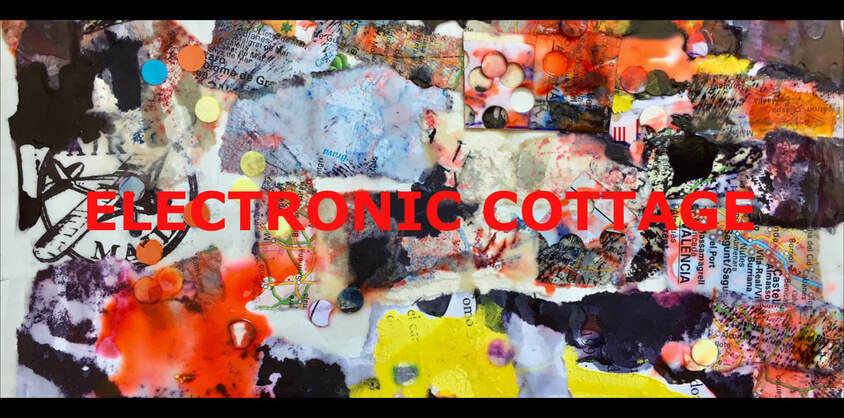
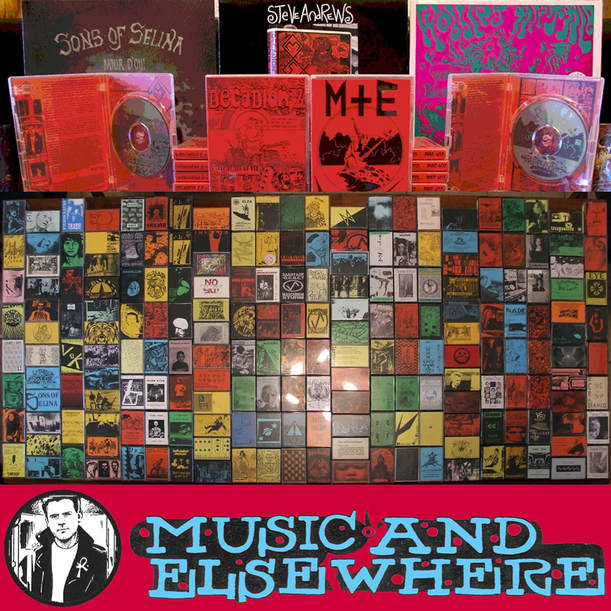
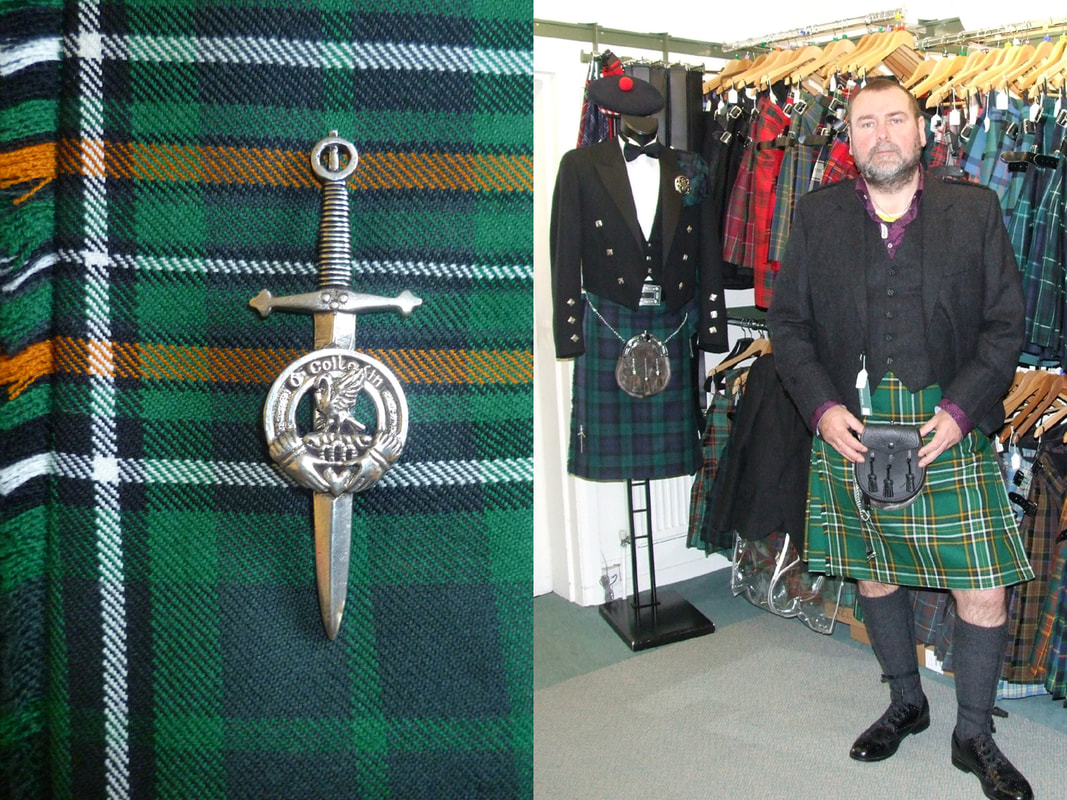
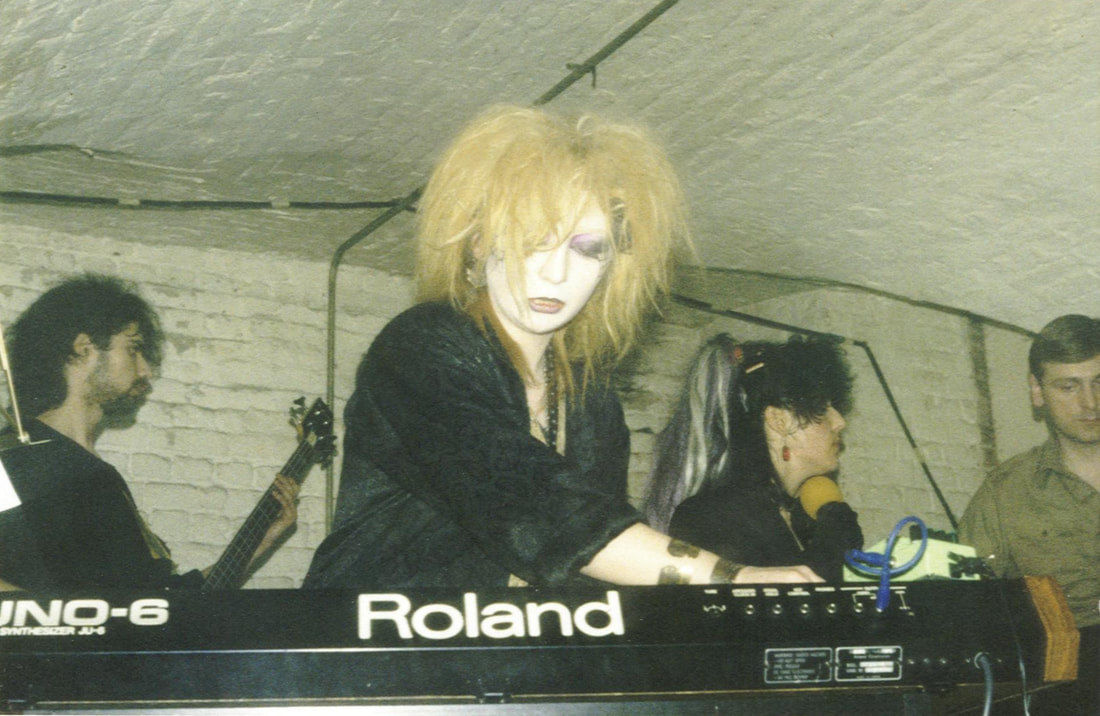
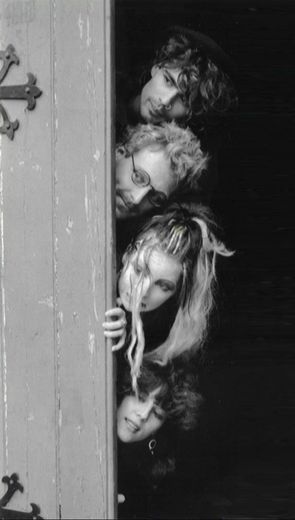
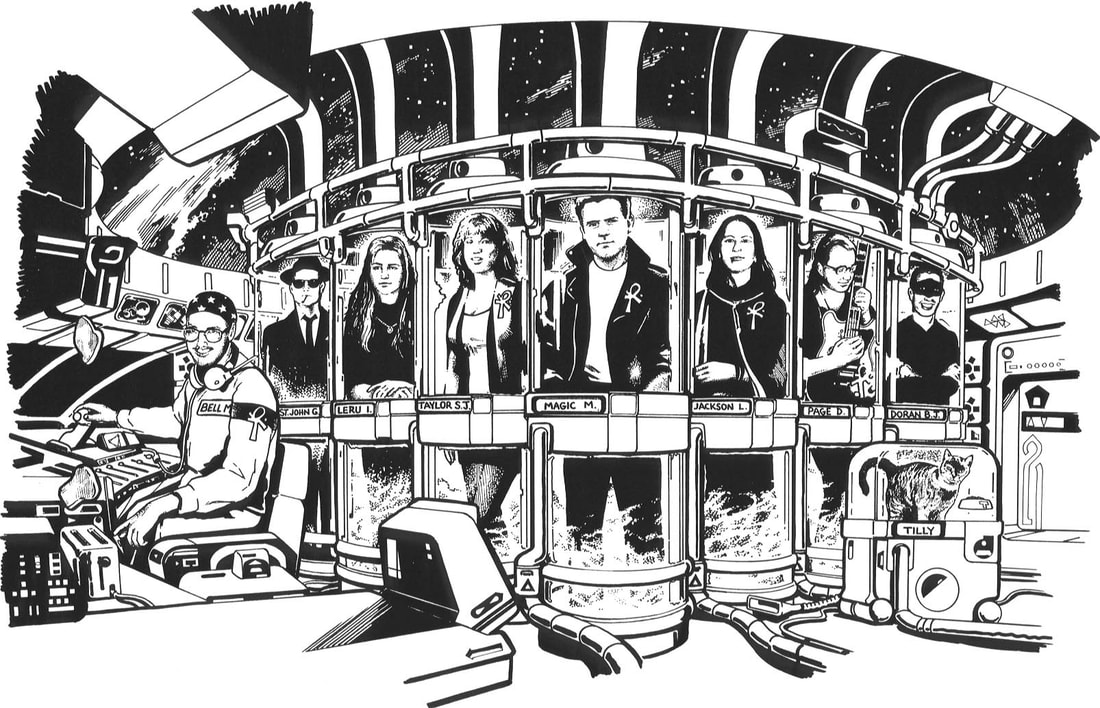
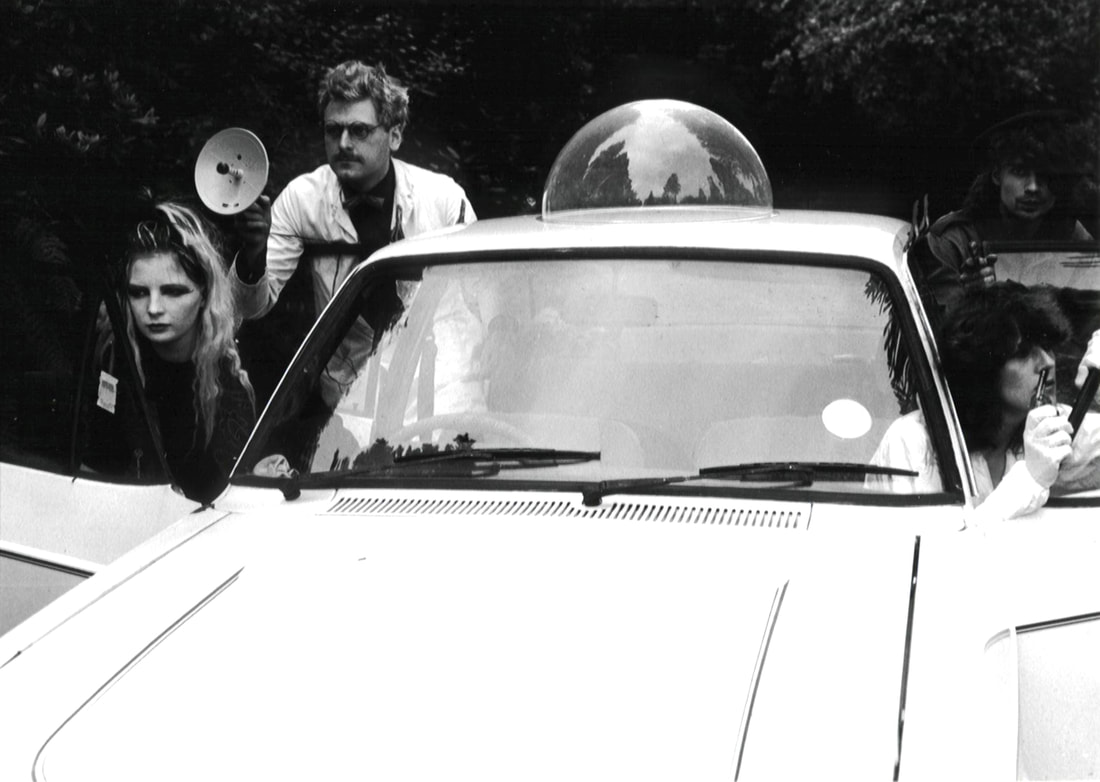
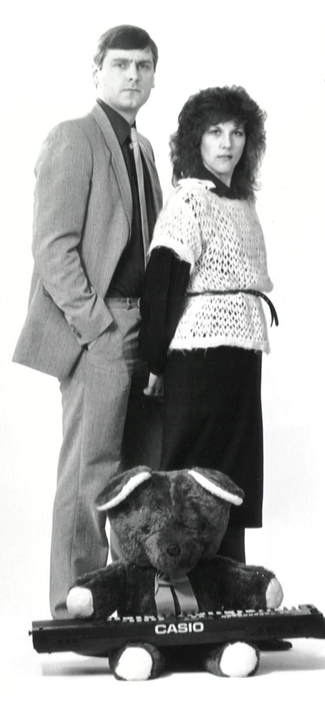
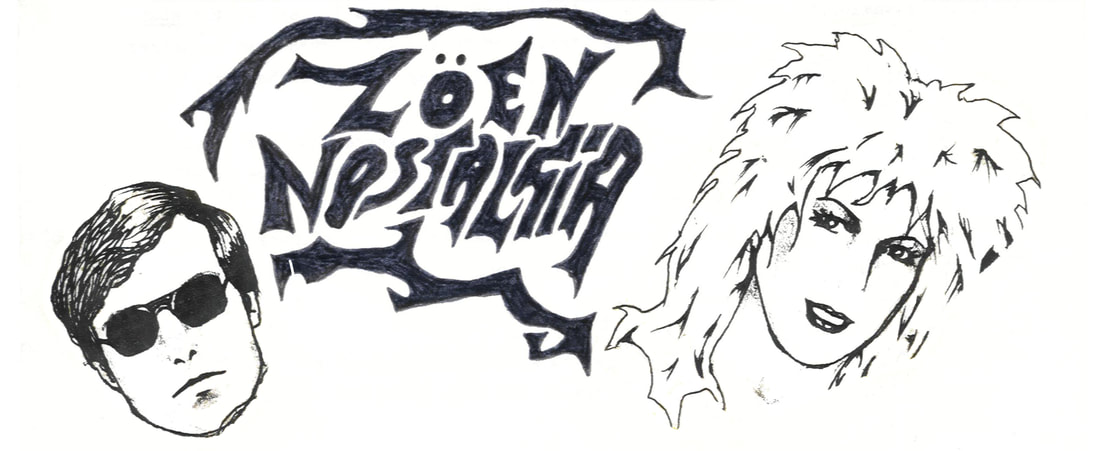

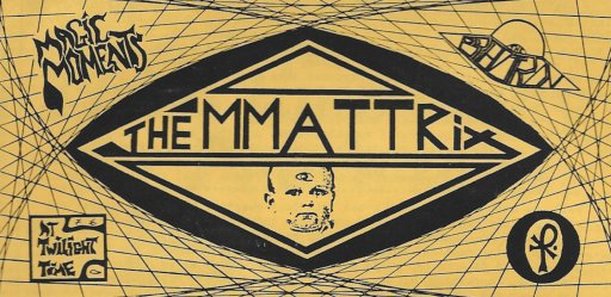
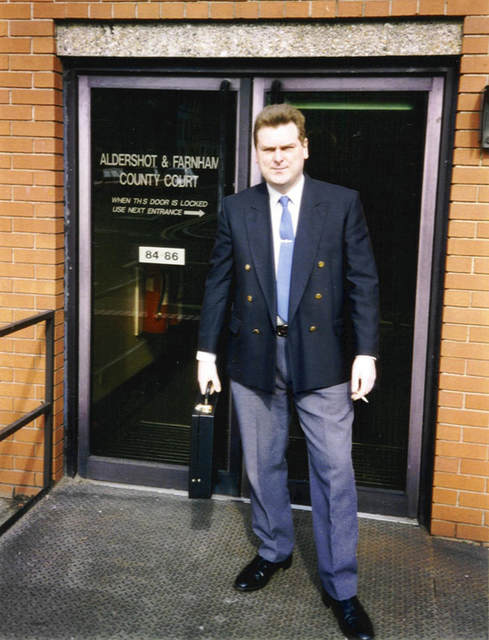

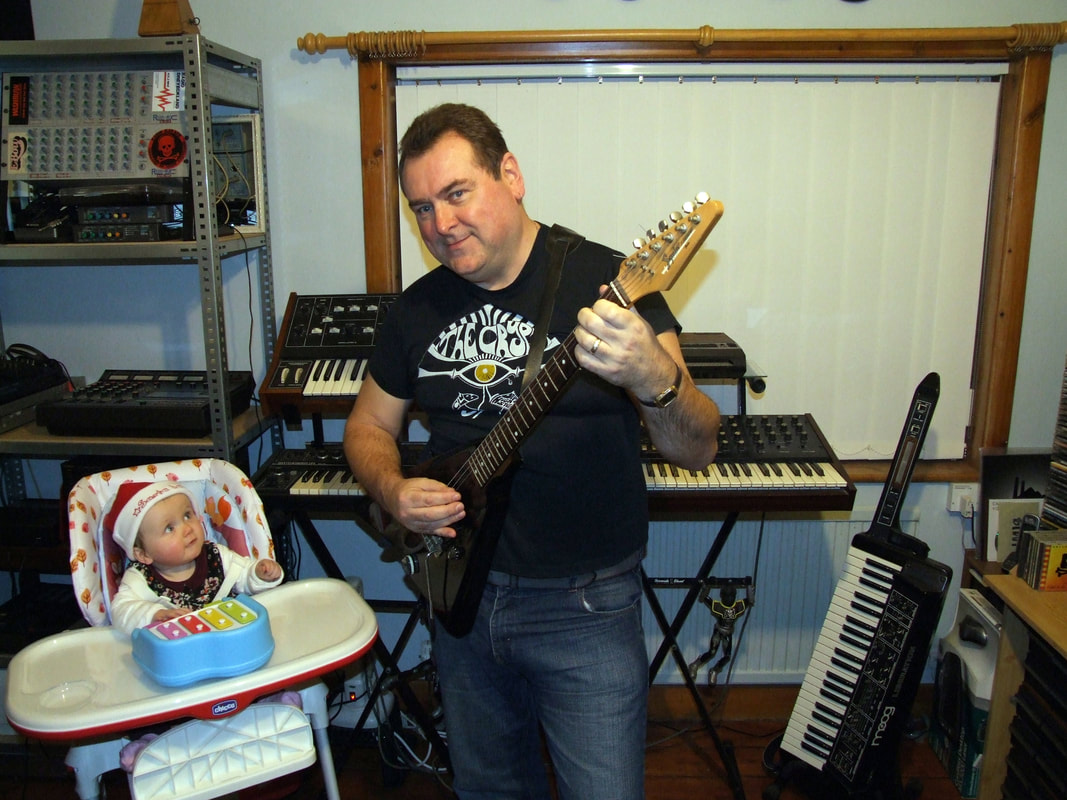
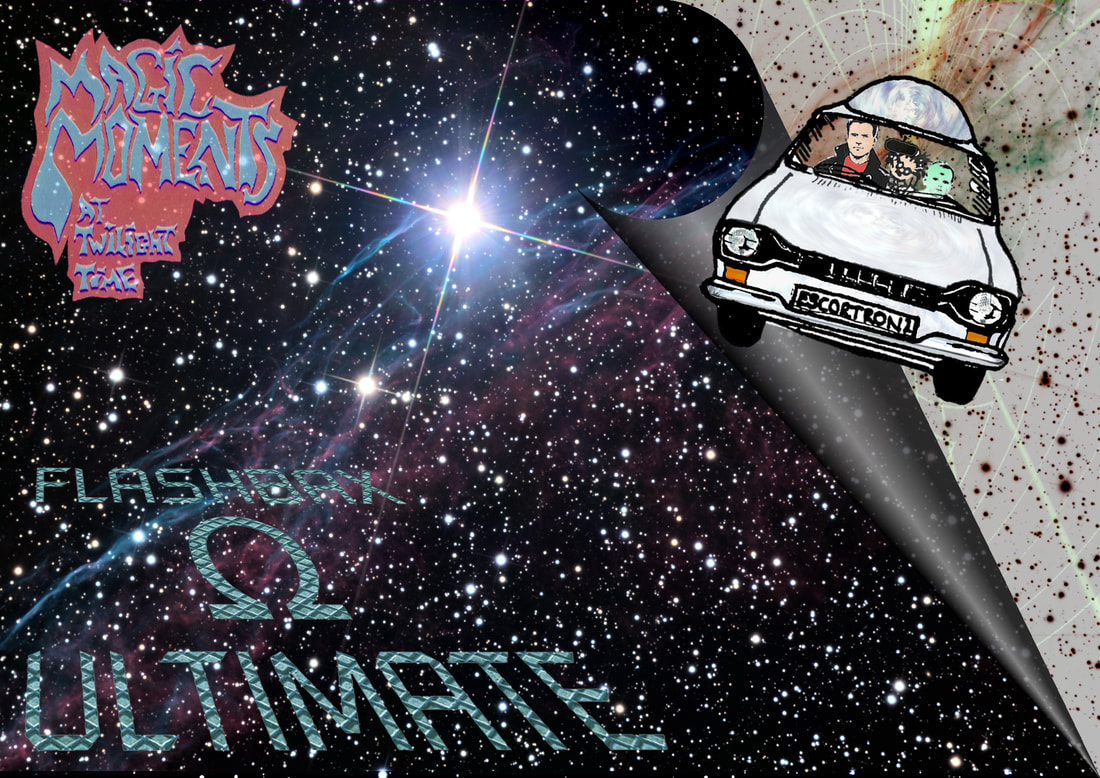
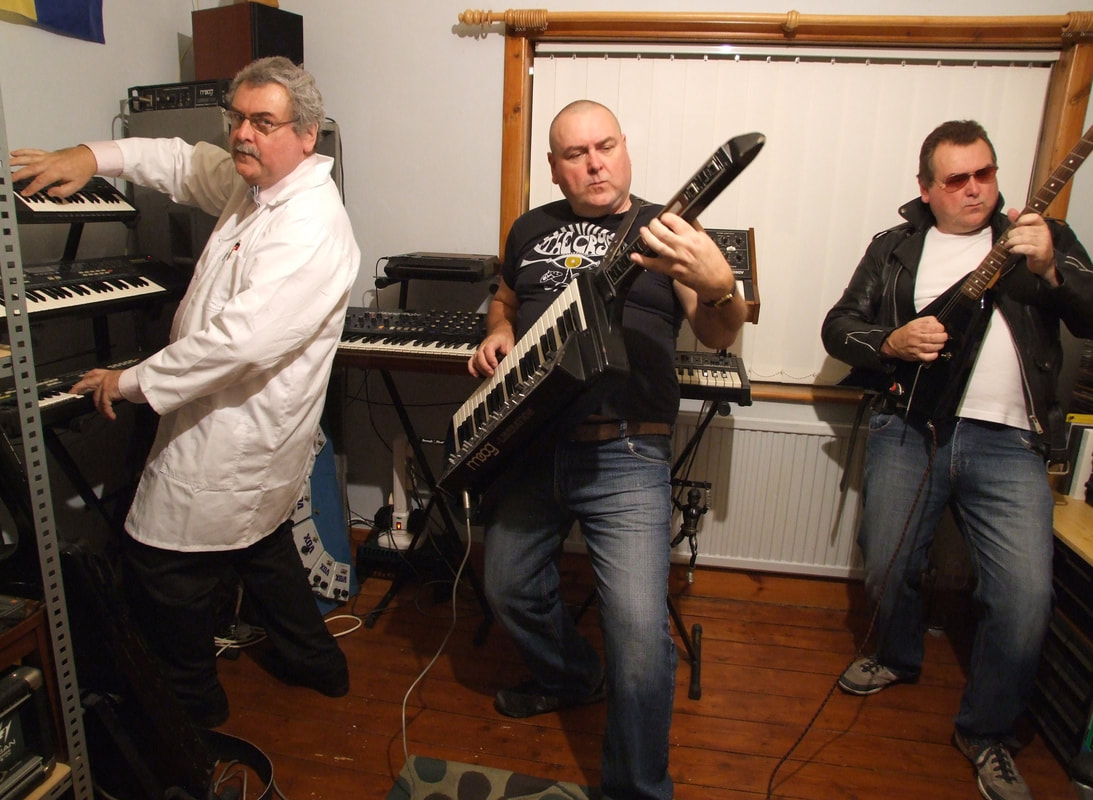

 RSS Feed
RSS Feed